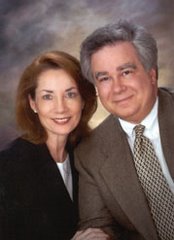Memphis homes in foreclosure, like most city’s real estate markets today, are easy to find but not always so easy to purchase. Consumers receive the message from media hype, that they can find real bargains or even achieve wealth by purchasing bank-owned homes. In rare cases, a buyer may find a foreclosed home that is in fair conditon. Unfortunately, this is the exception and not the rule. Most foreclosures, even those advertised as needing some “TLC”, are usually in need of major work. Many have been stripped of light fixtures and appliances, and have been treated unkindly, to say the least, most likely by the owner that was foreclosed on or the tenant that was forced to move out.
Real estate agents are bombarded with information on how to get rich selling foreclosures and emailed offers to teach Realtors on how to become an expert at marketing this type of property. Opportunities do exist for investors and agents who want to run a high-volume, low-commission business, but the homes and the opportunities are not as wonderful as the marketing leads us to believe.
Foreclosures are a growing part of the inventory and Realtors work with them because we have buyers who say they want to find a “deal” on a foreclosure. The process of buying a home from a bank is different than buying it from a private party—it is slower, and there is more paperwork and it always seems as if the bank is in no hurry whatsoever to close one of these transactions. Not to mention the very poor condition that most of these homes are in, leaving a Realtor chasing a turkey… for a buyer looking for the golden goose.
Buyer’s may wait a week or so to get a response from an offer on a foreclosed property, and the answer may be a counter offer or a rejection rather than an acceptance. Banks would like to get as much as they can for these homes to cut their losses, so they are in no hurry to take the first offer or a lowball offer.
Unless a buyer has years of experience in buying this type of property, they will have no idea what they may be in for after a purchase. It’s not the easy to see repairs that are the costly repairs, but the “hidden” repairs and “surprise repairs” that take the value added profit or added equity away from the investor. If a buyer ends up with so much invested in repairs that the homes value is worth less than or the same as the amount invested, then they now own a home where they are waiting for equity to buiid, not much different than if they had just purchased a home in good conditon that was not a foreclosure.About 25 to 30 percent of the inventory of available homes are foreclosures in our area and that number is growing. It will be interesting to see how this shakes out in a few years. The number of foreclosures locally and nationwide have a measurable impact on the fabric of our neighborhoods and on our economy. Although someone always figures out a way to make money off of this scenario, it is not evident who will be the winners and who will be the losers. One thing is for sure, this entire market shakeup will have to work itself out, or the spiral will grow stronger and pull our entire economy to it’s knees. Lets hope this does not happen.
Learn more about Memphis Tennessee...not only real estate but also Memphis area business, sports, the arts, schools, and much much more.
About Me

- Don DeBaer & Connie Chambers
- Professional Relocation Realtors Offering our native Memphian experience in your home search or in marketing your current home.

